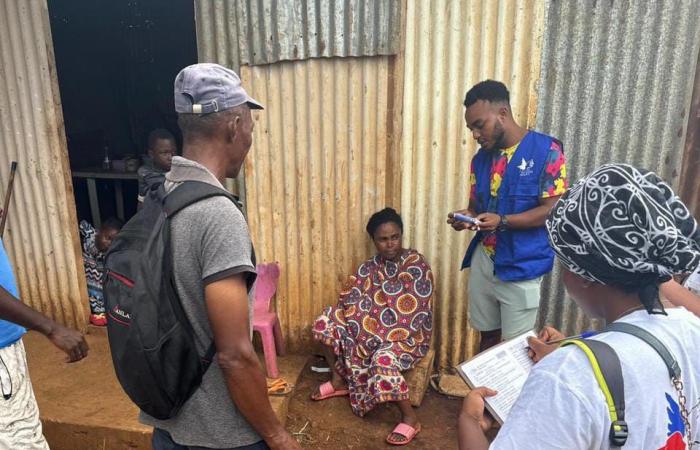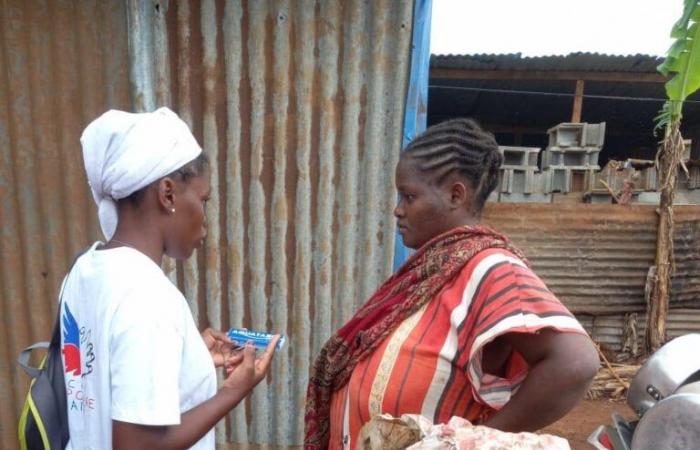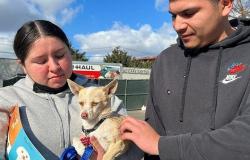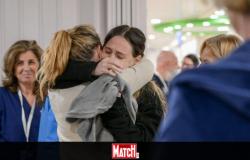The Association of Students and Youth of Mayotte (AEJM) is one of the local partners of Secours populaire. Its director Saïd Mohamadi discusses the support provided by Secours populaire. He also takes stock of the situation after the disaster of Cyclone Chido while the island has just suffered tropical storm Dikeledi for three days.
Mayotte has suffered since the passage of Cyclone Chido and with the flooding from tropical storm Dikeledi which occurred last week. What is the situation on site?
We have just come out of the red alert, after three days of tropical storm Dikeledi. All shops and gas stations were again closed preventively. This time the island was heavily affected in the south. Significant flooding caused landslides there. In places, the roads are completely out of use. This tropical storm caused fewer casualties than the previous cyclone, but the damage was still significant, because many homes had already been weakened by Cyclone Chido. My generation had never imagined experiencing such an intense climatic event. It's worse than what our parents and grandparents experienced 40 years ago. Everyone was affected. In many cases, people lost all their possessions.
Two Secours populaire missions went to the site. How do you act together?
We met members of the two Secours populaire missions. They gave us tablets to purify river water, five mobile phones to call the 2000 students and apprentices that we usually follow. This allowed us to carry out our social evaluations and maintain contact with them. Secours populaire entrusted us with Starlink* stations to provide a satellite internet connection, while waiting for the terrestrial network to be repaired. It will also supply us with food and solar batteries which we will send to students in the north of the island.
We conducted social assessments with students and apprentices. We increased the number of phone calls, as well as field trips to meet the young people we were unable to reach. Carrying out this task in a disaster area took us some time, but it has now been achieved. We will distribute food kits and hygiene products to young people and their families.
How will you guarantee young people the continuation of their studies?
We are considering several solutions. One of them is the establishment of a mobile service to reach out to disaster victims because there is no public transport on the island. We will use a van converted into a solidarity grocery store and in which we will also be able to conduct individual interviews in order to direct young people towards other social services if necessary. We will also strengthen our team by recruiting a professional integration counselor and a social worker. We are also considering setting up support courses so that young people can make up at least part of the courses they will not have attended this year. Once the return to normal is assured, we will resume our mission of health prevention and day care at the students' home, where we offer access to the Internet and to social support professionals.
The start of the school year was first postponed to January 20. But we have just learned from the rectorate that it has been postponed indefinitely because of the fragility of the damaged buildings. On the other hand, a week before their scheduled reopening, schools were still housing a large number of victims. Time to evacuate everyone and prepare the premises in the allotted time was impossible.
-How is life organized on a daily basis?
Everything remains very complicated. Electricity, despite the reinforcements dispatched from the mainland, has not yet been restored throughout the territory, particularly in the north of the island. Telephone and Internet are in the same situation. The water treatment plants are damaged, their production has decreased even though it was already insufficient before Chido. State services import a large quantity of water and distribute it free of charge through CCAS and associations. Only two bottles per person per week. This is very insufficient, especially since it is very hot.
People queue for hours at supermarkets, Monday to Sunday, to get two packs of water per person. Certain brands, as well as small businesses, which we call here “ Doukas ”, which means “shops” in Mahorais, have increased their sales prices. Sold for 2 euros in Reunion, the pack of water reaches 7 euros once arrived in Mayotte. Such an increase is also observable for rice, the staple food, because all agriculture is destroyed on the island. Families will not be able to rely on what they grow in their garden and will have to buy everything from the supermarket.
What are your concerns for the near future?
We need to clothe ourselves and eat. However, despite the significant volume of aid provided by NGOs, needs are not covered. We should not believe that all the problems will be resolved once access to water or electricity has been resolved. We live in a territory in which everything is problematic: it is the poorest of the French departments; and from very far away. Rebuilding permanently takes time, it is expensive and, at the moment, there is a shortage of materials. Reconstruction must be done gradually, in a concerted manner, but across a whole range of sectors.
* Starlink is a satellite internet service designed by SpaceX to connect residential, roaming and business users.







